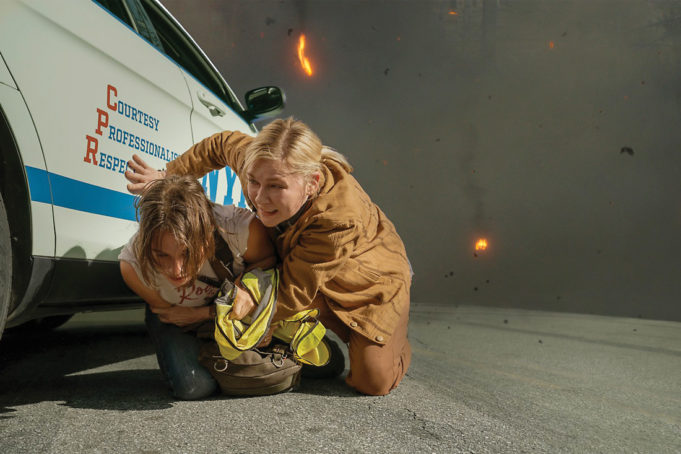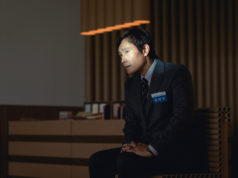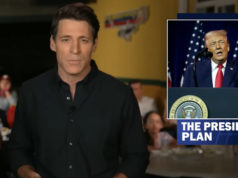This past week we saw Civil War, a movie about a second American civil war taking place in the near present. We are four years removed from an attempted coup by a mob of traitorous right-wingers and seven months before another election that has many people predicting yet more violence whatever the result might be. (Oh, and some people are still fighting over the meaning of the first Civil War — lookin’ atcha, Nikki Haley.) So this movie must be an important document with something to say about the current state of our nation, right? I’m afraid I’ll have to disappoint you, though you should blame writer-director Alex Garland, not me.
Garland, of course, is the dazzlingly talented British director of such films as Ex Machina and Men. Sometimes a foreigner can observe a country better because he thinks to point out features that the natives take for granted. Unfortunately, Garland has never been all that interested in America, even though one of his better movies (Annihilation) and his ill-conceived TV show (Devs) were both set here. Early on, we’re informed that Texas, Florida, and California have joined in rebellion against the United States, and while another filmmaker might have made that make sense, here it just comes off as tin-eared. The film never touches on the specifics of why there’s a civil war in the first place, so we don’t know whom we should be rooting for, regardless of our political leanings. While his approach chimes with the way its combat journalist characters are trained to think about covering a conflict, it’s undeniably frustrating for those of us who are seeking some insight into why real-life America is so divided. The movie can’t be bothered with that, which is really too bad, because it’s pretty good regarding what it does bother to discuss.
The story begins with legendary war photographer Lee Smith (Kirsten Dunst) taking pictures at a violent protest in New York City when she sees a younger colleague (Cailee Spaeny) take a police baton to the face. While Smith escorts her injured fellow photog away from the action, a suicide bomber runs past them and blows herself up, massacring police and protesters alike. Shortly afterward, Lee and fellow war reporter Joel (Wagner Moura) embark on a circuitous route to Washington to interview the president of the United States (Nick Offerman), whom they figure will be dead at the rebels’ hands in a matter of weeks. Tagging along are the aforementioned younger photographer, whose name is Jessie, and an old one-legged writer (Stephen McKinley Henderson) who figures to join the insurgents in Charlottesville, Virginia.
The movie is more concerned with the mindset of combat journalists, the sort of people who run toward gunfire when they hear it and do work that I never could do. Their work is important, but they also get high off the action — Joel sees gunfire over the skyline of Pittsburgh and says, “My dick is so hard for that!” A deglamorized Dunst gives a nice hard-bitten performance as someone who’s seen too much and has no wish to be responsible for a 23-year-old fangirl on such a dangerous trip. We see how the photographers move in ways that give them protection in combat, and Jessie makes a number of mistakes that place her in danger while resulting in some killer shots.
Garland is good at generating surreal scenes from the setup, like a shootout that takes place in a Christmas-themed amusement park in the heat of summer. Jesse Plemons contributes a harrowing cameo as a soldier who confronts our heroes at a mass grave and maintains his easygoing, jocular demeanor even while he starts shooting them. The climactic set piece has our heroes following the rebels as they storm Washington, and it’s as grand and destructive as an action junkie could wish, with the rebels firing a rocket into the Lincoln Memorial and the presidential motorcade making a break for it outside the White House gates.
I wonder if all that is good enough. These days, people seem reluctant to go to the theater unless a movie promises to be an earthshaking event. Civil War does promise to be some great commentary on our cultural zeitgeist, and yet it’s not much more than a higher-minded version of White House Down or Olympus Has Fallen. Garland has said in interviews that this movie was inspired by him observing a similar polarization of society in his native Britain. I rather wish he had set this movie in the U.K., because then it would have felt more specific, more real, and more relevant to our own situation. That would have been a real event.
Civil War
Starring Kirsten Dunst and Cailee Spaeny. Written and directed by Alex Garland. Rated R.












